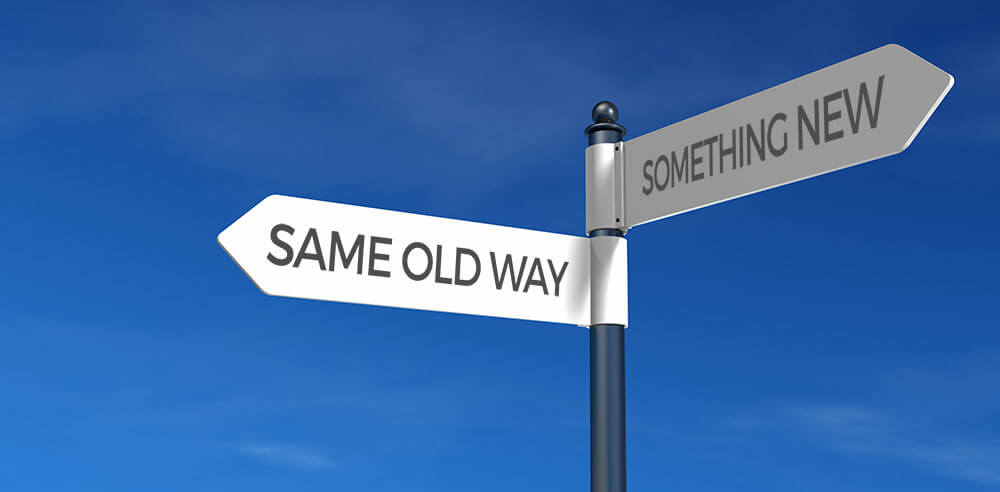
As I write these words, the world is still going through the coronavirus pandemic.
NB: This is an article from Asksuite
Trying to predict hospitality trends in 2021 seems like a bold attempt, but here I am giving it a try.
Almost a year after the worst crisis in the hospitality industry has started, good things are starting to happen: vaccines are being distributed and in January U.S. monthly meetings and events volume increased 7.3% over the previous month. It’s not that much, but it’s a start.
Subscribe to our weekly newsletter and stay up to date
Yet, there is still a lot of uncertainty around the travel scenario. Many countries are on lockdown again and borders are closed once more. But there is one thing that most experts agree on: even with the vaccine, things will probably not “get back to normal” – thus the concept of “new normal”.
The way people interact now – in their personal lives and in business – is here to stay. At least for a while longer. People will travel again, but they need insurance that they are safe. The concern about health will keep impacting the hospitality industry for the next months, or years.
With that said, these are the hospitality trends in 2021 that I believe have already changed the industry and give no signs of checking out soon.
I divided them into 4 big topics:
→ Travel Demand
a) Extended Stays
b) Leisure Travel
→ Revenue Management Trends
a) Added Flexibility
b) Rates
→ Marketing Trends
a) Channel-of-choice
b) Hotel Website and Social Media
→ Guest Service Trends
a) Enhanced Hygiene Protocols
b) Touchless Technology
Travel Demand
a) Extended Stays:
For many people, traveling has always been an adventure. With the pandemic, that statement got a new dimension. There are many hygiene protocols to be followed, tests to be taken, risks to be calculated. It takes a real effort to travel nowadays.
Add to that the financial factor. A lot of people have lost their jobs or are afraid to lose them so they are thinking twice before spending money on “extras”, like traveling. The financial crisis is not an incentive to travel per se.
That is why experts believe that extended stays will be a trend in 2021. Travelers will take fewer trips, but when they do, they will probably try to make the best of it – meaning staying longer at the same destination. Making the most of what can be the only opportunity to travel seems to be a logical way to think about travel demand.
b) Leisure Travel:
I participated in many hospitality webinars during 2020 and all the experts I had the chance to talk to strongly believe that leisure hotels will probably bounce back sooner than the city center hotels.
Why? Because people have adapted to work remotely and companies realized that employees can work from home and be productive. More than that: companies have figured out that not every travel trip is necessary and virtual meetings can save a lot of money. I haven’t met anyone who hasn’t done at least one business meeting via Zoom or Google Meet video conference in 2020.
Regarding leisure travel, the big trend from the middle of 2020 up to now is road trips. In fact, according to Pulse Report, ‘Domestic Travel’ made a comeback in 2020, now representing 49.7% of nights booked per annum, vs 23.0% in the year 2019.
Again, the risk factor plays a key role. Travelers feel safer when traveling by car than getting into an airport and inside a plane. You control the environment and have much less contact on your way. Plus, it is usually cheaper. Win-win.

Revenue Management Trends
a) Added Flexibility:
If we are not sure about how the travel scenario will be, especially if we think about international travel, it’s only logical that travelers are scared to book a trip they won’t be able to make. The pandemic is demanding that hotels not only have to adapt to the crisis but also find ways to minimize the damage.
By offering flexibility in cancellation policies, hotels encourage hesitant travelers to book now, keeping customer lifetime value in mind. The flexibility shows that hotels understand travelers’ unique situations and travelers will remember that once things get better.
Maybe during ordinary situations and normal days, hoteliers must strictly follow hotel cancellation policies, because it will avoid revenue losses. But hotels need to show flexibility in times of crisis.
b) Rates:
This is a quite controversial topic. Many Revenue experts claim that dropping prices won’t create demand and that in fact will do more damage than good. But the truth is that the crisis hit everyone. That includes travelers who are more cautious to spend money and/or have lost their income.
I do believe that rates still play a role in the booking game. It is not the only factor to take into account but is still relevant. Plus, if your hotel is the only one with high prices compared to your comp set, chances are people will prefer to stay somewhere else. That is why is recommended that hotels adopt dynamic rates so you get behind the competition.
One way to be able to put down the prices without compromising so much hotel revenue is to analyze the channels of distribution and check if it’s possible to increase direct bookings. The direct channel implies that there is no commission to be paid, giving hotels more flexibility when setting a room price.
Another reason why hotels should focus on direct bookings is that this channel has proven to be the most resilient in 2020, generating 58.6% of bookings in 2019, outperforming Booking (41.5%), Expedia (22.8%), and GDS (26.6%), according to Pulse Report.
This hospitality trend seems to keep going up as people prefer to contact hotels directly now when there are so many questions before booking a room regarding hotel status, local status, protocols, and so on.
👉 Whatsapp Business is a powerful sales and marketing communication channel for hotels that can help you boost your hotel direct bookings. Learn the best practices here: [WhatsApp for Hotels]
3. Marketing Trends
a) Channel-of-choice:
According to Forbes, it is always best to answer the question on the channel of the customer’s choice if possible. Customers get annoyed really fast if they have to switch channels to get an answer.
But that’s not all. Besides having to change the channel of communication, many times when customers are forced to do so, they need to repeat themselves to the next agent in the next channel. That is the perfect recipe for customer frustration as best.
A true “channel of choice”’ experience allows customers to swap between communication modes based on needs and preferences, building greater levels of customer engagement and loyalty. It involves being available in different channels, including social media and providing seamless customer service no matter the channel of choice.
https://asksuite.com/blog/multichannel-or-omnichannel-hotel/?utm_source=revenue-hub&utm_medium=referral&utm_campaign=asksuite-article-link-rh-postThat takes strategy, a collaboration between Marketing and Customer Service, and technology. Technology enables you to have a single view of the customer contact history across all channels.
A good recommendation here is to try to understand your customer preferences so you can build the best communication strategy and get better results.
b) Hotel Website and Social Media:

The hotel website is the main asset of any hotel. After all, it’s where the hotel exists in the virtual world, which is as important as the real world. That is why it continues to be considered the most important Sales & Marketing priority for hoteliers and ranks as the most important priority by 59.7% of respondents.
There are many factors to be considered here that can impact the success of the hotel’s online performance: speed page, mobile-friendly, copywriting, content, online booking experience. It is highly important that hotels focus on these factors since they are the main door to more direct bookings.
A good strategy to convert more on hotel websites is the use of chatbots that encourages more guest interactions during the booking process. This strategy is called conversational marketing and it has been proven to be very efficient and not expensive a customer service asset during the booking process.
AI-powered chatbots remove lengthy waiting times and providing intelligent responses to questions increasing customer satisfaction and direct bookings at the same time.
But hotel websites are not the only way to get more direct bookings. A hospitality trend we are seeing more and more is the power of social media as sales channel. When people interact with a hotel brand, they are not just looking for pictures or general information.
In many cases, they also want room quotations and even to purchase directly on Facebook or Instagram, as so many other industries do. Why would consumers’ behavior be different in the hotel industry?
Including social media as a sales channel can make a big difference in your hotel revenue. It will take strategy and you might think that you don’t have enough staff to handle it. But by not answering requests on social media, you will be losing many booking opportunities.
Here again, tech tools, like chatbots, can be the solution. Technology and humans working together enhances the customer experience and can give you the competitive advantage you need.
👉 Do you know that Asksuite won the Hotel TechAwards for the second time in a row as Best Website LiveChat and Chatbot? Learn more: [Best Hotel Chabot 2021]
4. Guest Service Trends
a) Enhanced Hygiene Protocols:
The pandemic is still going on. Even though vaccines are on their way, it will take a while longer until people start to feel safe and sound again. Thus, is no wonder why hygiene protocols will still be a hospitality trend in 2021.
Every hotel in the world has enhanced its protocol and it’s likely that they will continue building on and improving their various healthy stay programs and partnerships. That is no other way than to adapt procedures, train staff, and give every insurance possible that guests and associates are safe.
But implementing new protocols is not enough. It is equally important that hotels communicate what they are doing to guests and target-audience. There are many ways to do that: emails, chatbots, social posts, and signs spread around the hotel. The more the guests know what the hotel is doing, the stronger is the trust to make a booking.
b) Touchless Technology:
Needless to say, the trend towards digital and contactless services has gained new momentum in 2020: mobile check-in, contactless payments, keyless entry, voice control, and biometrics are some of the options available.
Minimizing touchpoints will continue to be a primary goal across the travel sector. Mobile and QR codes are very popular hospitality trends right now and will probably continue even after the control of the pandemic. Why?
The boom of these technologies might have started as a way to reduce the spread of potentially harmful germs. But these technologies go beyond the health factor. They also talk about one thing travelers really like: convenience. And that won’t change after the pandemic.
The truth is that the adoption of technology was already happening before the arrival of the coronavirus. The health crisis was only a final push to hesitant hotels to embrace technology in many aspects of their operations, guest service included.
Who wants to go back to stay in line for check-in when you have the option of going straight to your room after a long trip?
Hospitality Trends 2021: will they last?
I believe most of these trends are here to stay even after the pandemic checks out. When you think of the Marketing and Guest Service trends, it’s hard to think that they will simply disappear. Our digital behavior and our desire for convenience won’t change any time soon.
Perhaps in terms of Travel Demand and Revenue trends, we could see a variation in the future. But is my belief that they won’t change that much in short term. The financial crisis will impact these hospitality trends a while longer and I don’t think travel demand will bounce back quickly.
One thing that 2020 has taught us though is: be prepared for the unexpected. Flexibility and adaption are, in fact, the biggest hospitality trends.




